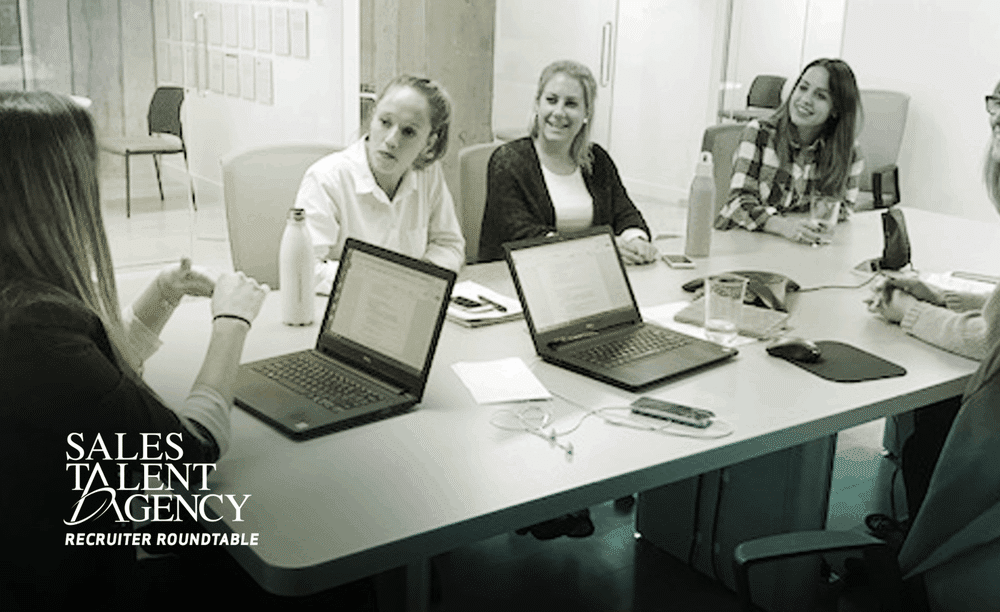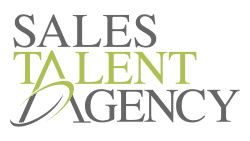Today’s business world can be really confusing when managing your career. How to meet potential employers? How to write a sales resume? How to negotiate your offer or a raise? All of these topics and more are discussed in our Recruiter Roundtable series, where we invite a diverse group of Sales Talent Agents to share their ideas and debate the topics important to you. Today’s topic is “What do you wear to a job interview?”

Dress to appeal to the widest audience
Hayley: I once had a candidate come in with bling earrings that my client mentioned. He said ‘those earrings need to come out if he works for us’. Whether that’s wrong or outdated… that’s the reality. Especially when it comes to specific industries and old-school decision makers.
Katrina: I think there is a certain level of understanding and risk that you take on naturally when you go to an interview. Especially if you decide to roll up your sleeve to show off your tattoo. It adds a personal layer and can sometimes detract from what you have to say professionally.
Beth: Exactly. Once there was a guy who wouldn’t take off his nail polish. He said ‘This is me. If they are going to hire me, it’s with my black nail polish’. He definitely narrowed his audience right there. It was a bold move.
Make the statement piece YOU
Kailey: When it comes to styling yourself for an interview you want to keep it neutral. The whole idea is that you want to make yourself appeal to the widest audience; tone down the lipstick, the bold accessories, the statement shoe… YOU should be the focus of the conversation. Not your wacky bowtie or crazy nails.
Leave distracting accessories behind
Kailey: A guy once came in for an interview to do a presentation. He was very sharply dressed; steamed shirt, everything fit perfectly… but he was wearing suspenders and they kept falling down. He had to keep pulling them back up. It was a huge distraction to me throughout the entire interview. I wanted to ask him to remove them so I could focus. Same thing goes for girls and fiddling with jewelry.
One-size-does-not-fit-all: Use your judgement of what is appropriate for your body type
Natalie: When it comes to dressing appropriately for women, I think it’s hard to determine a ‘one-size-fits-all’ rule. I think it depends on many factors, the main one being body type. It’s especially hard when it comes to creating a general rule for dress and skirt lengths. For instance, I’ve definitely looked in the mirror and thought: ‘this is inappropriate’ because I’m tall and have longer legs. Even if I’m wearing a skirt below the knee with a modest heel I’ve felt there is too much emphasis on my legs and that flats would be better.
Truzanne: That’s a fair assessment. I also think tights for women are always a safe bet. Are they a must? No. But I think it’s harder for people to critique your outfit and say ‘too much leg’. Tights are just a general safe choice.
Katrina: You’re right, it totally depends on body type. I personally don’t think shorter women should wear dresses below the knee, but that’s just my opinion. What about footwear?
Air on the side of conservative, neutrals are always a safe bet
Hayley: Keep it basic. Not too high of a heel. Nothing loud. Again, shouldn’t be a statement piece as if you were going out with friends on the weekend. Black is always a safe choice, same with nude or any neutral colour really.
If you would wear it to a bar, you probably shouldn’t wear it to an interview
Kailey: I used to work in a very corporate environment and you were not allowed to wear boots over the knee. It was a hard rule.
Katrina: It’s interesting that we as women can’t wear over-the-knee boots. They are technically not inappropriate but could be deemed as ‘too sexy’ or risqué. I also think it’s different if you are wearing them with a dress showing your upper thigh versus a dark jean.
Natalie: Another tip for women is to watch the material of your clothing. If you are wearing a button-up shirt make sure the material isn’t see-through, you definitely don’t want your bra to be showing. Also, make sure your buttons are not open. It’s happened to me. I was actually interviewing a candidate. I looked down and both of my top buttons were open, I kid you not. For how long? I don’t know.
Truzanne: In terms of men’s apparel, I’d say a general rule of thumb is dress to impress; slacks, a button up, nice shoes… And then the obvious- make sure your pants aren’t too long or short, shoes are tied, shirt is pressed, socks match, hair groomed… Go to the company’s website/Linkedin page and take a look at how the people are dressed in their photos.
Dress for the client/audience you will be selling to
Beth: If you do not have the luxury of working with a recruiter who can ask the client on your behalf, I’d say to go ‘suited and booted’. Everyone looks good in a suit. It sets a certain tone and impression. That said, sometimes clients say ‘Tell the candidate- no tie. No jacket. Slacks and a button up shirt… because that’s how I dress’. I think it’s important to match the industry you are going into because you wouldn’t dress the same across the board.
Katrina: I’ve have clients in the industrial space say, ‘you will be selling into a blue collar crowd so you want to match that’. In general, they would rather see the candidate more casual rather than suited up. This applies to both men and women.
Natalie: Unless you felt you were standing out like a sore thumb in the first interview because you were overdressed, you don’t want to give people the impression you have it in the bag by showing up to a second interview too casual or relaxed. If you’re that casual on the second interview, how are you going to look in your second month? You should treat every interview as if it’s your first interview– don’t have a huge change in how your present yourself.
Bring yourself, a resume and nothing else
Katrina: Here’s another thing: when you arrive to your interview, don’t bring a coffee. You’re not there to drink a coffee. You’re there for an interview. It’s just awkward, especially if you need to shake someone’s hand and you have your bag in the other hand…
Hayley: We literally had a candidate come in who was going to bring his shopping bags with him to his interview… and the interesting thing is that this candidate had done so much preparation– He was over-analyzing the interview… he wanted the job more than anything else… but he didn’t even think anything of bringing this Nordstrom shopping bag with Jimmy Choo’s for his girlfriend.
Beth: Oh my gosh! So there’s a rule- bring nothing but yourself, your resume and any other relevant materials for the interview. Nothing else.
If you have facial hair– groom it
Kailey: This next rule is for the men. Nowadays beards are especially in- I’d say 90% of the guys I’ve interviewed have had beards. I think you can have facial hair for an interview but it needs to be manicured. It can’t look scruffy. It needs to look like it’s well kept. Same goes for a haircut. It adds a level of polish, professionalism and overall attention to detail.
Truzanne: In some fields such as medical or pharmaceutical, I think a beard could even be a deterrent. I had a director of sales once tell me ‘men need to shave their beard’. Maybe this isn’t always 100% realistic, but the goal is to look sharp and being well groomed contributes to this. Your appearance speaks before you do.
Don’t subject people to your scent (whether that’s eau de parfum or au natural)
Katrina: This applies to hygiene as well– watch your body odour. Sometimes guys, or ladies, either don’t know they smell sweaty or on the flip side, absolutely reek of cologne/perfume. You shouldn’t get out of an elevator and subject people to your overly pungent scent- good or bad. Neutral is best. Again the focus should be you and what you have to say.
When in doubt, wear a blazer
Truzanne: This is a total sidenote but I’m curious to hear your thoughts: As women, I used to feel the only ways I could be business professional was if I was wearing a blazer.
Beth: I agree with you but I hate blazers.
Truzanne: When I was in school and I was attending business events… I would never know what to wear. I would ask people in H&M ‘do you think this is professional?’. I would always find myself going back to the blazer because whether you like them or not, it’s definitely a piece that says ‘business professional’.
Natalie: I agree. It’s not a fashion statement, it’s an item you need or will have to wear at some point. I think everyone should have a black blazer, a grey blazer… a general blazer that goes with everything…
Katrina: I always bring a blazer to client meetings. Even if you are wearing casual clothing such as jeans or a t-shirt underneath, I feel a blazer adds a level of class and professionalism over say, a sweater.
Beth: Alright. Well I will have to put one on my Christmas list then!!
(Everyone laughs)
Kailey: Well that wraps it up! Thanks everyone for yet another recruiter roundtable!
Be sure to check out our other Recruiter Roundtable’s including our advice on navigating holiday parties and networking 101
